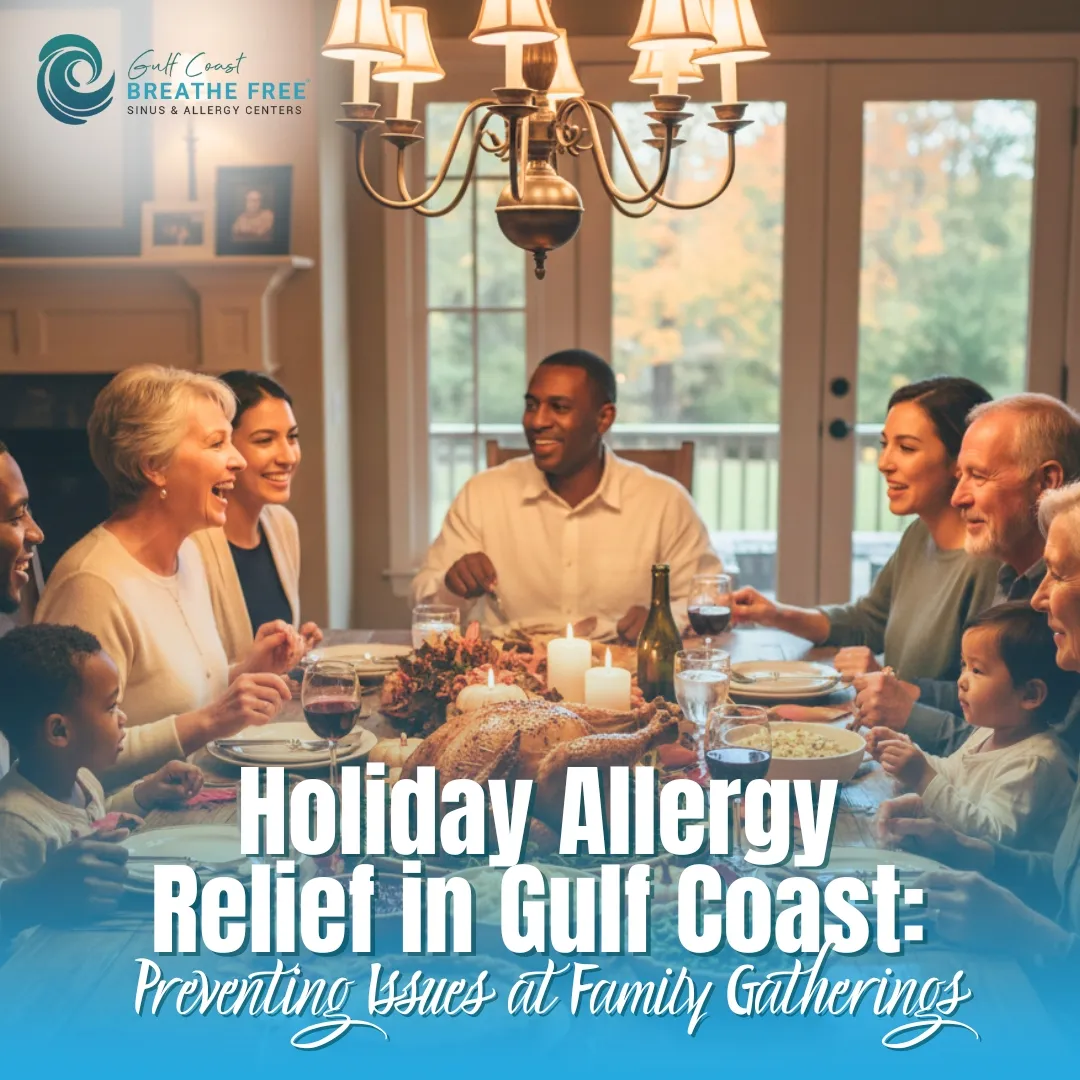Holiday Allergy Relief in Gulf Coast: Preventing Issues at Family Gatherings
The holiday season along the Gulf Coast means cooler weather, family dinners, and festive decorations. But for some people, it may also bring an unwelcome guest: allergies. Between indoor gatherings, travel, and seasonal changes, symptoms can flare up this time of year.
If you find yourself sneezing at the dinner table or feeling stuffy after decorating, indoor allergens may be contributing to your symptoms. Understanding what triggers holiday allergies in the Gulf Coast can help you stay comfortable while still enjoying time with loved ones.

Why Holiday Allergies Are Common on the Gulf Coast
Unlike colder regions where frost ends pollen season, the Gulf Coast’s mild climate allows certain allergens to linger all year. Ragweed, mold spores, and dust mites often remain active even during winter.
Common triggers in our area include:
- Mold spores: Damp weather and humidity can encourage mold growth, especially in fallen leaves, basements, or stored decorations.
- Dust mites: Unpacking boxes or cleaning for guests may stir up dust that worsens sneezing or congestion.
- Fragrances and candles: Scented candles, air fresheners, or pine decorations can bother sensitive noses.
- Indoor allergens: Spending more time indoors means greater exposure to pet dander, smoke, and dust.
Together, these factors mean it’s wise for some people to take extra steps for comfort during the holidays.
Tips for Managing Allergy Symptoms During Holiday Gatherings
1. Freshen Up Decorations
Holiday decorations stored for months often collect dust or mold. Before putting them up, gently wipe ornaments, wreaths, and lights with a damp cloth. When possible, choose non-allergenic materials or artificial greenery instead of live trees that may carry pollen or mold.
2. Keep Indoor Air Clean
Running a HEPA air purifier in your main living spaces can help trap airborne particles. If you’re cooking for guests, turn on exhaust fans — they reduce smoke and help circulate fresher air.
3. Watch Out for Food Allergies
Holiday dishes sometimes contain common allergens like nuts, shellfish, or dairy. If you or a guest has food sensitivities, ask about ingredients or bring a safe dish to share.
4. Manage Humidity
Too much moisture can increase mold growth. Aim to keep indoor humidity around 40–50%. A dehumidifier can be especially useful after heavy rain.
5. Prepare Early
Some individuals find that starting their allergy medication early, under the guidance of a healthcare provider, helps minimize symptoms during peak exposure.
When to See an Allergy Professional
If your congestion, pressure, or headaches last more than a week or interfere with daily life, it may be time to consult a professional. Persistent symptoms can sometimes indicate sinus inflammation or other allergy-related concerns.
At Gulf Coast Breathe Free, our team offers evaluations that may help identify potential triggers and explore options for managing them. Understanding what’s affecting you is often the first step toward improved symptom management.
Enjoy the Season — Comfortably
With some proactive steps, it may be possible to minimize allergy-related disruptions to your celebrations. Simple changes — like cleaning decorations, filtering indoor air, and managing humidity — can make the holidays more comfortable for many Gulf Coast households.
If you’d like to learn more about allergy relief options in the Gulf Coast, visit Gulf Coast Breathe Free to schedule an evaluation and explore personalized strategies that may help improve symptom control. Individual results may vary.

.webp)